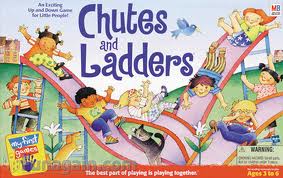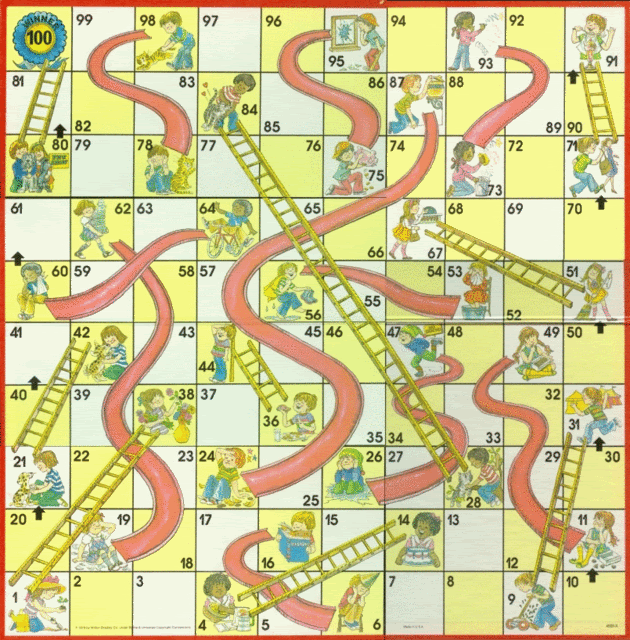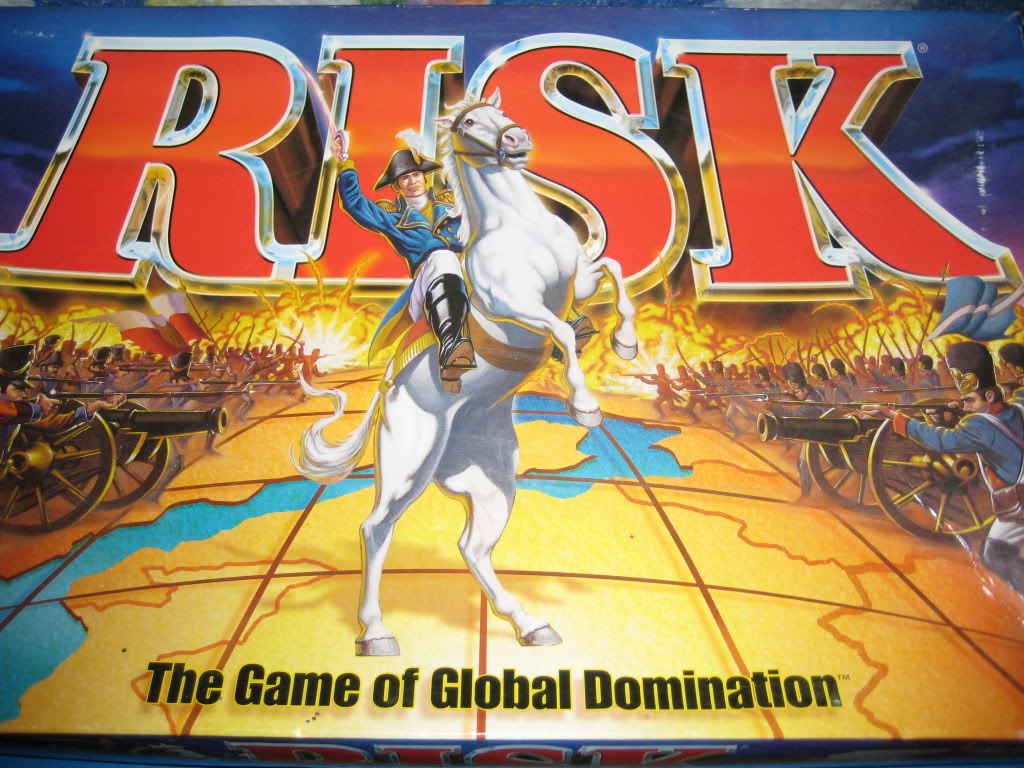Why A Startup is Like Chutes and Ladders
 You know Chutes and Ladders–the board game (Snakes and Ladders to those of you from the British Commonwealth). It’s popular among the younger set since the game is simple and requires no skill. In fact luck is a major component of success with the game. The goal is to be the first to move through the 100 spaces of the board. If you land on a ladder, you get to go up the ladder and advance a number of spaces equal to the length of the ladder. If you land on a chute, you slide down a number of spaces. Careful observers will note that landing on a ladder and advancing is the result of performing some virtuous task like baking cookies. And going backward down a chute is the punishment for a vice like breaking a window.
You know Chutes and Ladders–the board game (Snakes and Ladders to those of you from the British Commonwealth). It’s popular among the younger set since the game is simple and requires no skill. In fact luck is a major component of success with the game. The goal is to be the first to move through the 100 spaces of the board. If you land on a ladder, you get to go up the ladder and advance a number of spaces equal to the length of the ladder. If you land on a chute, you slide down a number of spaces. Careful observers will note that landing on a ladder and advancing is the result of performing some virtuous task like baking cookies. And going backward down a chute is the punishment for a vice like breaking a window.
 It seems to me that the parable of this game is a metaphor for what it’s like creating a startup. And in particular the “two steps forward, one step backward” sensation is very much like raising venture capital.
It seems to me that the parable of this game is a metaphor for what it’s like creating a startup. And in particular the “two steps forward, one step backward” sensation is very much like raising venture capital.
Below I’ll describe in black the action in Chutes and Ladders followed in blue the parallel activity in a startup.
- In Chutes and Ladders, while the game purports to reward virtuous behavior, luck is the single biggest determinant of the outcome. My six year-old daughter habitually beats me. Every entrepreneur will tell you that luck is a major factor (good or bad) in determining the outcome of a startup.
- There are practically no rules although certain normative behaviors are expected. Entrepreneurs love to break the rules.
- Just when you think you’re just about there, you land on a chute and go back many spaces. This reminds me of the time (I’ve had it happen twice) when we had signed term sheets with investors and then, for different reasons, the deals fell through. We were almost there–until we weren’t.
- You can go from way behind to way ahead in a single move. We were minding our own business until Google called…
- You can go from way ahead to way behind in a single move. We were minding our own business until the patent trolls called…
- While experience counts for something, you can still lose to a six year-old. Look at what’s happened to the publishing and telco industries, just to name two.
- The game has a very defined beginning and end. Yep. Just like a startup…and life.
- If you lose, crying usually evokes sympathy. Enough said.
- Eventually you grow up and learn to play Risk. Aspiring to global domination.


Texas Hold’em: You can bet not to win, and just to survive (small bets, fold often), or you can let ego get the best of you and go all in in the wrong situation. Managing emotion is key as in startupville.
Puzzles: Always trying to find the right pieces to fit together- hopefully learning faster at each stage. Unsure of how it will all look in the end.